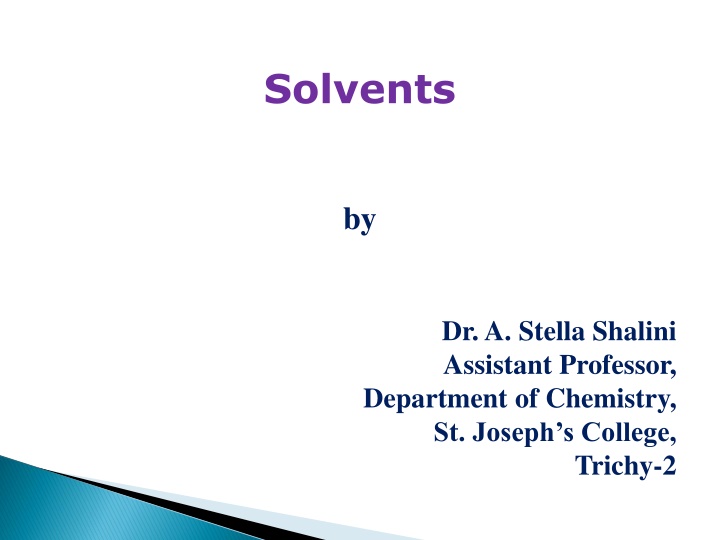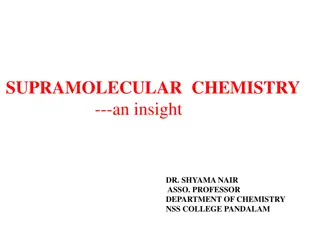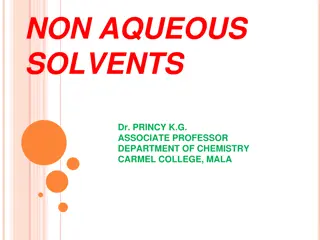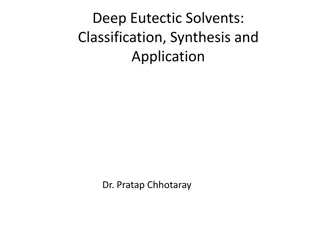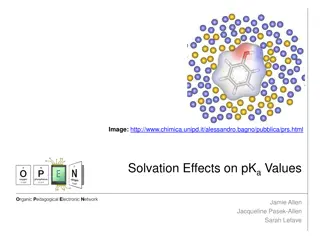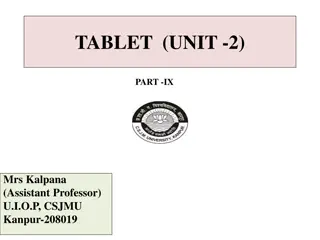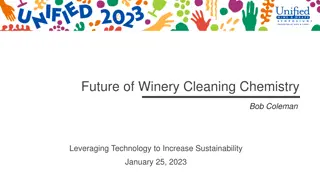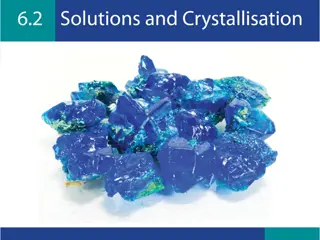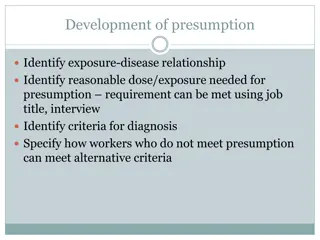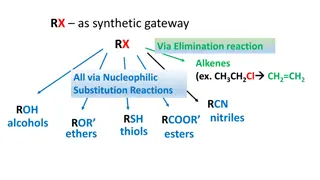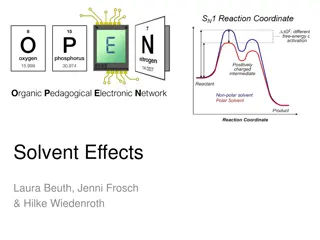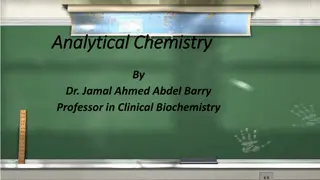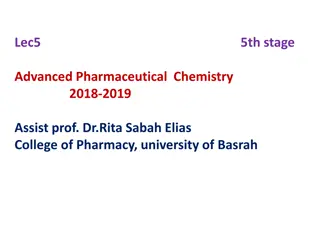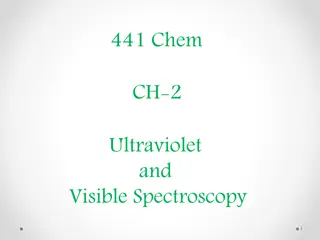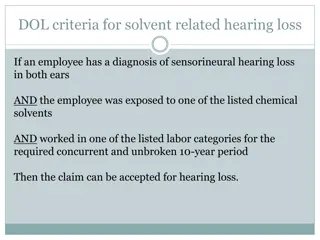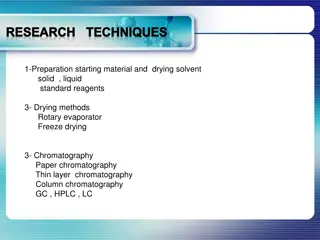Solvents for Chemistry Enthusiasts
Explore the power of solvents with Dr. A. Stella Shalini, Assistant Professor of Chemistry at St. Joseph's College, Trichy-2. Learn about the properties of water as a universal solvent, its ability to dissolve substances like salt, and non-aqueous solvents such as liquid ammonia. Discover the classification of solvents based on protic, aprotic, acid, basic, amphiprotic, ionising, and non-ionising properties. Delve into the world of solvents and their role in chemistry.
Download Presentation

Please find below an Image/Link to download the presentation.
The content on the website is provided AS IS for your information and personal use only. It may not be sold, licensed, or shared on other websites without obtaining consent from the author.If you encounter any issues during the download, it is possible that the publisher has removed the file from their server.
You are allowed to download the files provided on this website for personal or commercial use, subject to the condition that they are used lawfully. All files are the property of their respective owners.
The content on the website is provided AS IS for your information and personal use only. It may not be sold, licensed, or shared on other websites without obtaining consent from the author.
E N D
Presentation Transcript
Solvents by Dr. A. Stella Shalini Assistant Professor, Department of Chemistry, St. Joseph s College, Trichy-2
Substance - power of dissolving other substances
Water as Universal solvent Water is an excellent solvent. High dielectric constant & high ionizing capacities Reduces forces of electrostatic attraction binding the charged ions in solid electrolytes.
Water as Universal solvent (contd.) It is neutral, odourless, non-toxic and non- poisonous. So handled safely. Due to these characteristics, water serves as the most useful solvent.
Non aqueous solvents They have sizeable dielectric constants and high ionizing capacities like water. (i) liquid ammonia (ii) liquid SO2 (iii) Anhydrous HF (iv) Anhydrous H2SO4 (v) liquid N2O4
Classification of solvents: (1) Protic and Aprotic solvents (2) Acid solvents, basic solvents and amphiprotic solvents (3) Ionising and Non-ionising solvents
